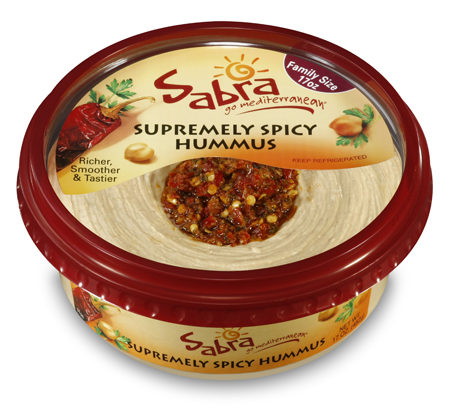The dip monolith Sabra has filed an 11-page petition with the FDA “to establish a standard of identity” for hummus in the United States.
In a statement released on May 19, the company stated that “hummus must be comprised (by weight, besides water) predominately of chickpeas, and must be no less than 5% tahini. Sabra defines hummus as, ‘the semisolid food prepared from mixing cooked, dehydrated, or dried chickpeas and tahini with one or more optional ingredients.'”
At first glance, the whole notion seems a bit outrageous—I mean, c’mon! Defining hummus? Ranking hummus? Does Sabra want to start WWIII?—but the FDA has standards of identity for a number of beloved food products, including peanut butter, white chocolate, and ice cream. SOIs are intended to protect the consumer, so that you know exactly what you’re buying when you’re doing your grocery shopping. (To wit: a lot of Italian olive oil is notoriously… well, not olive oil.) For people with allergies, established standards and clear labeling are especially important. And for hummus purists, there’s no offense more egregious than commercial ‘hummus’ spiked with dairy. (Reader, I tasted it.)
But on the other hand, as lawyer Debra Rade points out, standard setting is “the most effective way of eliminating the competition… If you set a standard that a competitor cannot meet, it is no longer a competitor,” she explains. “You sell white bean hummus? After the standard is implemented, you don’t sell hummus. You sell white bean dip and that may not be placed in the hummus aisle.”
So Sabra is either doing a great service for the hummus mavens of America, or trying to edge out Tribe. Either way, you can still make your own chickpea dip at home—and you can call it whatever you want.
Image: Sabra
Related: If You Try To Take My Sabra Hummus, I Will Fight You
Recipe: Chick(pea) it to me—Easy Hummus to Make at Home










मैल कुचैला पानी (Sullage) घरों के सिंक, शावरों और स्नानघर से निकलने वाला अपशिष्ट जल है
लेकिन यह शौचालयों से निकलने वाला अपशिष्ट जल नहीं
है।.